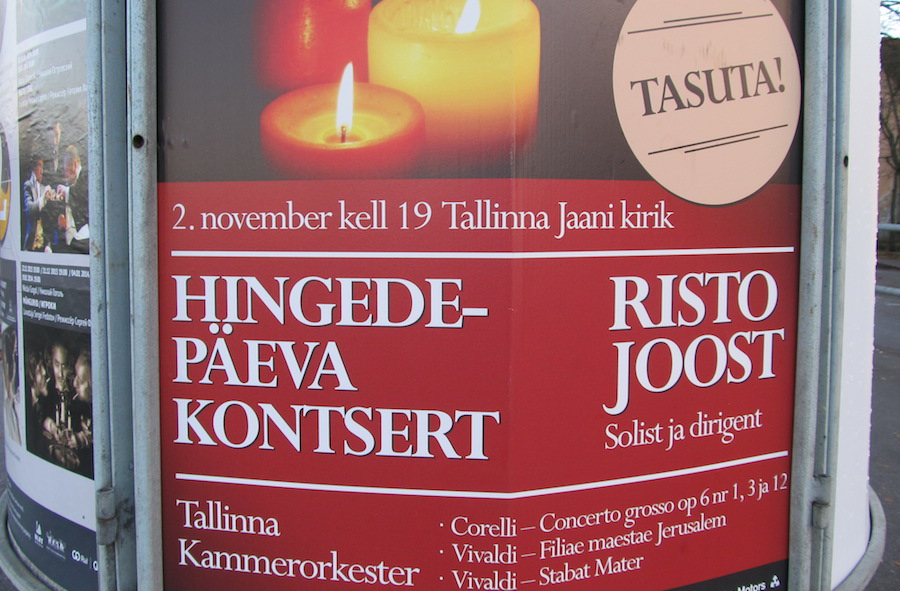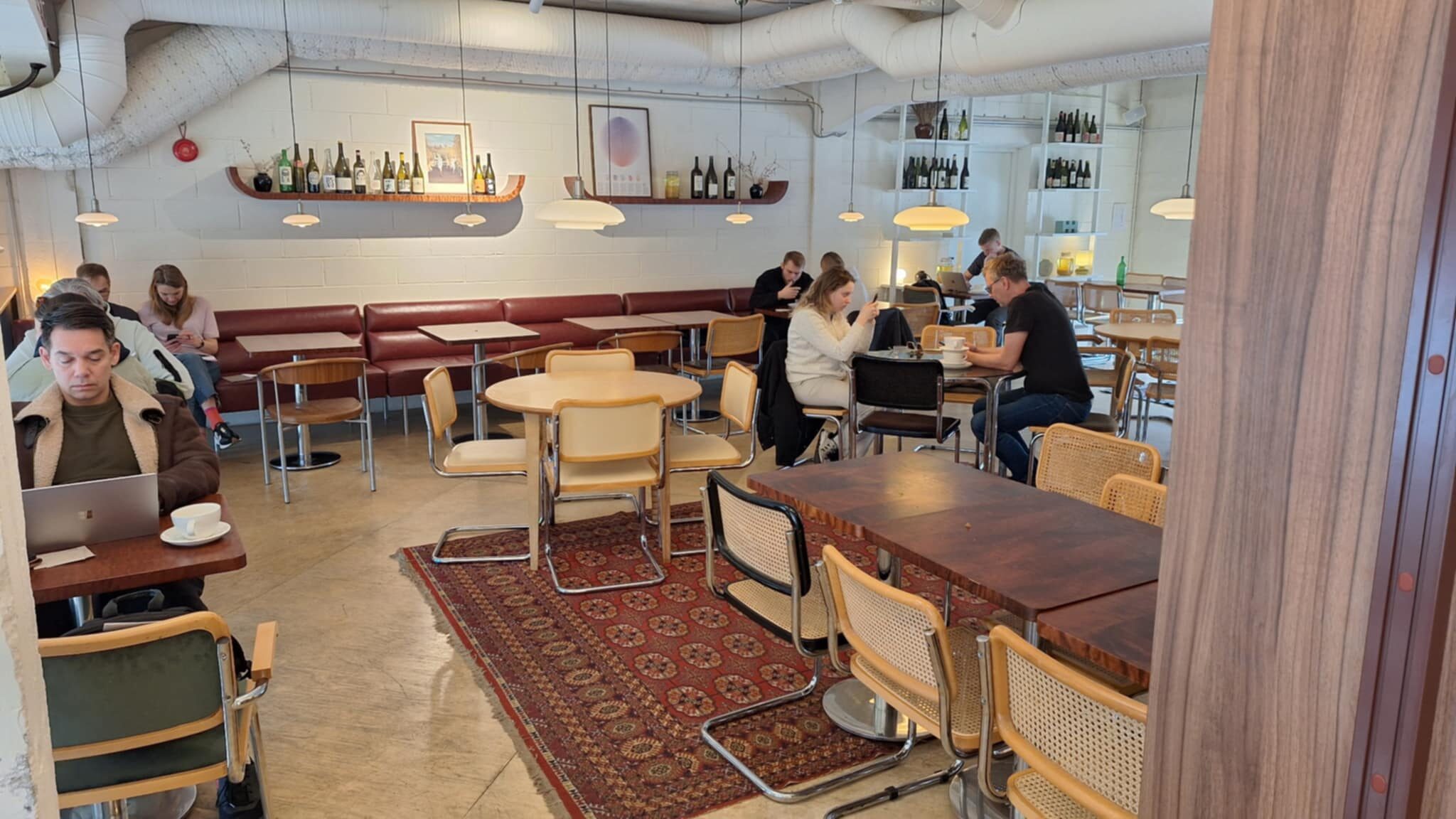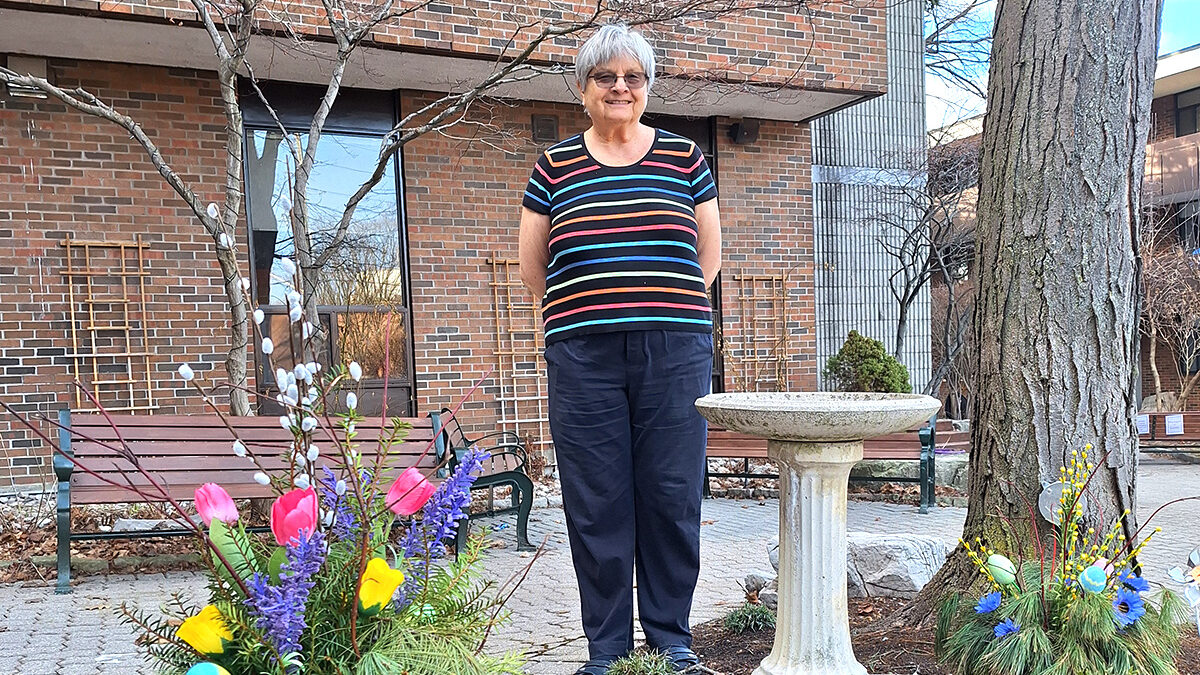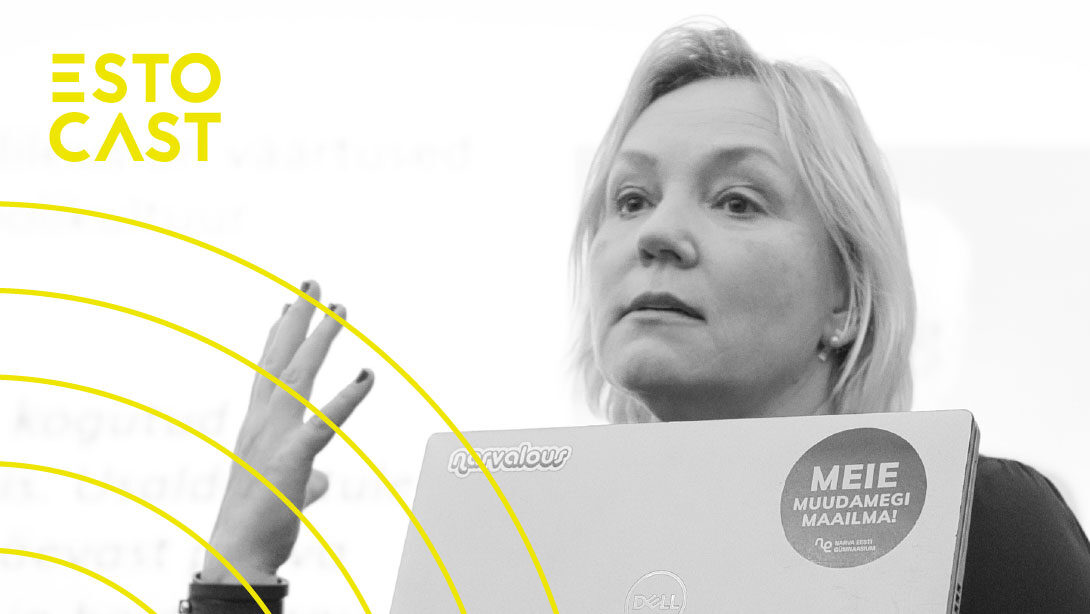Hing = soul and vaim = spirit, although there is considerable overlap between soul and spirit even in the Piibel (Bible). Hing is reminiscent of the word hingama, to breathe and hing is also breath (hinge/õhk). The Old Testament word for human spirit is “ruah”, which means: wind; breath, or “spirit”. The word “spirit” lifts human beings above the rest of life on earth and as many believe, links us with God. Ta laks hingusele (S/he went to rest /died), heitis hinge (his/her soul departed).
Hingede/aeg, the time of souls in Eesti, begins in October and lasts throughout November when the weather is dark, foggy and often quiet and warm (like this year). For centuries, the spirits of departed family members were awaited home, and especially on Thursday evenings during this period, a table with food would be set out for them, sometimes in the house, sometimes in the saun. The spirits would be called by name and asked to taste the food. They were also asked to protect the fields and herd. They were not only called, but also sent or escorted away, once the time came. You were not allowed to make a lot of noise during this period, even noisy tasks such as chopping wood were best done earlier.
As for the specific trio of days, Wikipedia sums it up neatly: “Hallowmas, also known as the Triduum of All Hallows (Triduum of All Saints), is the triduum (religious observance lasting three days) encompassing the Western Christian observances of All Hallows' Eve (Hallowe'en), All Saints' (or All Hallow's) Day and All Soul's Day, which last from October 31 to November 2 annually. Hallowmas is a time to remember the dead, including martyrs, saints and all faithful departed Christians. The dates of Hallowmas were established in the 8th century AD.”
This All Soul's Day concert, set to take place at Jaani kirik (church, St. John's) is tasuta, or without tasu meaning free of charge. The opposite would be tasuline. Tasu is a fee, charge or payment; also a reward or wages. Risto Joost is a solist (NB — you drop one “o” from soloist in Estonian), as well as dirigent (conductor) of the Tallinna Kammerorkester or chamber orchestra. Dirigent comes from the German word, but the French verb diriger is also similar, meaning to manage or run.
Riina Kindlam




